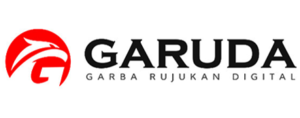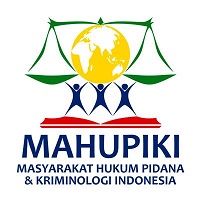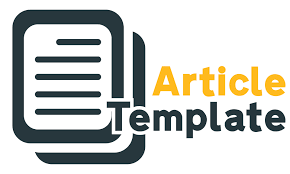KONTROVERSI DINAR DIRHAM SEBAGAI ALAT TUKAR JUAL BELI DALAM PERSPEKTIF FIQIH KONTEMPORER
Controversies of Dinar Dirham as A Trading Tool in Contemporary Fiqh Perspective
DOI:
https://doi.org/10.08221/lexlaguens.v1i2.12Keywords:
Dinar, Dirham, Buying and Selling, Contemporary Fiqh, Islamic Economic LawAbstract
The issue with this controversy is the use of dinar and dirham as the standard currency in the past, which is considered by some Muslim groups as a superior exchange tool for buying and selling compared to modern currency. However, on the other hand, the use of dinar and dirham is deemed impractical in its application. The purpose of this research is to explore the views of contemporary fiqh scholars on the use of dinar and dirham as a means of exchange in buying and selling, and to examine to what extent the use of dinar and dirham can be applied in the context of modern economics. The research method employed is literature study by collecting and analyzing various opinions of scholars and relevant literature. The results of the study show that contemporary fiqh scholars have diverse views on the use of dinar and dirham as a means of exchange in buying and selling. Some scholars argue that the use of dinar and dirham is still relevant in the context of modern economics because they have stable intrinsic value and can avoid inflation problems. However, there are also those who believe that the use of dinar and dirham is limited to the past and is not practical in its use in the modern era. The conclusion of this research is that the use of dinar and dirham as a means of exchange in buying and selling remains a topic of debate in the perspective of contemporary fiqh. The decision to use dinar and dirham or other currencies should be based on the convenience and needs of society, as well as adequate infrastructure support for their use. This research can provide a more comprehensive understanding of the controversy surrounding the use of dinar and dirham in the context of contemporary fiqh and can serve as a reference for academics and society to make wise decisions in the use of exchange tools for buying and selling.
References
Ahmad Amin Dalimunte, Issra Pramoolsook. “Genres Classification and Generic Structures in the English Language Textbooks of Economics and Islamic Economics in an Indonesian University.” LEARN Journal : Language Education and Acquisition Research Network Journal Vol. 13, No. 1 (2020).
Dede Al Mustaqim, Aswati Dkk. Fiqih Muamalah Dalam Berbagai Tinjauan. Edited by Jefik Zulfikar Hafizd. 1st ed. Bengkulu: CV Brimedia Global, 2022.
Ghana Qonitati Hanani, Vinny Kurniaty. “Relevansi Pemikiran Ekonomi Menurut Umer Chapra Dan Konsep Uang Menurut Al-Ghazali.” E-QIEN: Jurnal Ekonomi dan Bisnis Vol. 9, No. 2 (2022).
Harrys Pratama Teguh, Ersi Sisdianto. “Penggunaan Mata Uang Dinar Dan Dirham Sebagai Solusi Atas Krisis Ekonomi Global.” REVENUE: Jurnal Manajemen Bisnis Islam Vol. 1, No. 2 (2020).
Hosein, Imran Nazar. Jerusalem In The Qur’an. Long Island: Masjid Dar Al-Qur’an, 2002.
———. The Gold Dinar and Silver Dirham: Islam and The Future of Money. San Fernando: Masjid Jami’ah, 2007.
Maharani, Sri. “Keunggulan Dinar Dirham Sebagai Alat Tukar.” ATTANMIYAH: Jurnal Ekonomi dan Bisnis Islam Vol. 2, No. 1 (2023).
Nabila, Dian Arini. “Tinjauan Yuridis Penggunaan Dinar Dan Dirham Di Indonesia (Studi Kasus Putusan 202/Pid.Sus/2021/PN.Dpk Tentang Pasar Muamalah).” Jpurnal of Islamic Law Studies Vol. 4, No. 2 (2021).
Naushad Alam, Hanin Abdulrhman Al-Amri. “Service Quality Perception and Customer Satisfaction in Islamic Banks of Oman.” The Journal of Asian Finance, Economics and Business Vol. 7, No. 9 (2020).
Qardhawi, Yusuf. Peran Nilai Dan Nilai Dalam Perekonomian Islam. Jakarta: Robbani Press, 2001.
Qhardawi, Yusuf. Hadyul Islam Fatwa Mu’ashirah, Fatwa-Fatwa Kontemporer. 2nd ed. Jakarta: Gema Insani Pers, 1996.
Ro’fah Setyowati, Indah Purbasari, Encik Muhammad Fauzan. “Consumers Spiritual Rights in the Islamic Banking Dispute Out of Court Settlement in Indonesia.” Journal of Social Studies Education Research Vol. 9, No. 4 (2018).
Sahrani, Abd Muhaemin Nabir, Rahmatullah, St Hadijah Wahid. “Peluang Penggunaan Dinar Sebagai Alat Pembayaran Di Indonesia Dari Perspektif Fenomenologi.” Asy-Syarikah: Jurnal Lembaga Keuangan, Ekonomi dan Bisnis Islam Vol. 3, No. 2 (2021).
Al Shifa Al-Harthi, Madhave Hejmadi. “A Study of Mobile Banking with Reference to Customer Satisfaction in Bank Nizwa, Oman.” Journal of Student Research (2020).
Umer Chapra. Islam Dan Tantangan Ekonomi Syariah. Jakarta: Gema Insani Press, 2000.
Xin Xu, Heath Rose, Alis Oancea. “Incentivising International Publications: Institutional Policymaking in Chinese Higher Education.” Studies in Higher Education Vol. 46, No. 6 (2021).
Zakiy, Muhammad. “The Strategy of Islamic Economic Colleges to Prepare Their Graduates to Work in Islamic Banks.” Higher Education, Skills and Work-based Learning Vol. 11, No. 5 (2021).
Downloads
Published
How to Cite
Issue
Section
License
Copyright (c) 2023 Dede Al Mustaqim, Abdul Fatakh

This work is licensed under a Creative Commons Attribution 4.0 International License.












